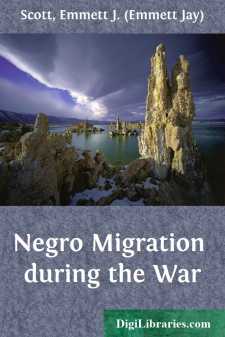Categories
- Antiques & Collectibles 13
- Architecture 36
- Art 48
- Bibles 22
- Biography & Autobiography 813
- Body, Mind & Spirit 142
- Business & Economics 28
- Children's Books 16
- Children's Fiction 13
- Computers 4
- Cooking 94
- Crafts & Hobbies 4
- Drama 346
- Education 46
- Family & Relationships 57
- Fiction 11829
- Games 19
- Gardening 17
- Health & Fitness 34
- History 1377
- House & Home 1
- Humor 147
- Juvenile Fiction 1873
- Juvenile Nonfiction 202
- Language Arts & Disciplines 88
- Law 16
- Literary Collections 686
- Literary Criticism 179
- Mathematics 13
- Medical 41
- Music 40
- Nature 179
- Non-Classifiable 1768
- Performing Arts 7
- Periodicals 1453
- Philosophy 64
- Photography 2
- Poetry 896
- Political Science 203
- Psychology 42
- Reference 154
- Religion 513
- Science 126
- Self-Help 84
- Social Science 81
- Sports & Recreation 34
- Study Aids 3
- Technology & Engineering 59
- Transportation 23
- Travel 463
- True Crime 29
Emmett J. (Emmett Jay) Scott
Emmett Jay Scott (1873–1957) was an influential African American educator, journalist, and author. He served as a close advisor to Booker T. Washington and became the secretary of Tuskegee Institute. Scott was also appointed as Special Assistant to the Secretary of War during World War I, where he advocated for the fair treatment of African American soldiers. He authored the book "Scott's Official History of the American Negro in the World War," documenting the contributions of Black soldiers during the war.
Author's Books:
Sort by:
CHAPTER I Within the brief period of three years following the outbreak of the great war in Europe, more than four hundred thousand negroes suddenly moved north. In extent this movement is without parallel in American history, for it swept on thousands of the blacks from remote regions of the South, depopulated entire communities, drew upon the negro inhabitants of practically every city of the South,...
more...
AUTHORS’ PREFACE THIS is not a biography in the ordinary sense. The exhaustive "Life and Letters of Booker T. Washington" remains still to be compiled. In this more modest work we have simply sought to present and interpret the chief phases of the life of this man who rose from a slave boy to be the leader of ten millions of people and to take his place for all time among America's great...
more...



